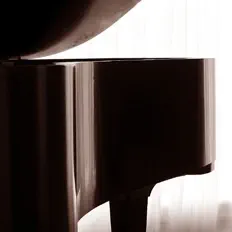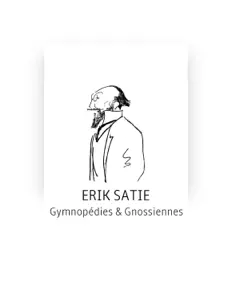
Instrumental
France
Erik Satie
Top de canções de Erik Satie
Próximos concertos de Erik Satie
Erik Satie tem atualmente 2 upcoming concerts; o próximo está agendado para quarta-feira, 29 de outubro de 2025 às Muziekgebouw aan 't IJ em Amsterdam, NH, Holanda.
Mais álbuns de Erik Satie
Sobre Erik Satie

Terra natal
Honfleur, France
Data de nascimento
1866
Género
Instrumental
Satie is often regarded as the most innovative French composer of the turn of the 20th century and one of the most significant figures in avant-garde music. Born in 1866 in Normandy, Satie was expelled from the prestigious Paris Conservatoire and at the age of 18 began composing the brief but scintillating piano suites that would make him famous. Despite the ingeniousness of these works—which combined gestures from French cabaret music with modes borrowed from ancient sacred music—Satie was overshadowed by less arch Parisian contemporaries Claude Debussy and Maurice Ravel. Today, Satie’s 1888 piano piece Gymnopédie No. 1 is ubiquitous on soundtracks and chill-out playlists, creating the misconception that Montmartre's favorite bespectacled eccentric was a one-hit wonder. But Satie’s output in the 1910s and 1920s evidences a broader, more anti-establishment creative imagination that would make him a hero to subsequent generations of composers. Works like his mystical Plato-inspired cantata, Socrate; his Futurist ballet, Parade (a collaboration with Jean Cocteau and Pablo Picasso); and his looping “furniture music” pieces (intended for background listening) anticipated experimental music movements to come: John Cage’s school of indeterminacy, modern neoclassicism, minimalism, and even ambient and New Age music.
Influenciado por Erik SatieErik Satie influenciou a música de Phelian, DeLange, peach tinted e outros.
Semelhante a: Erik Satie
Descobre mais músicas e artistas semelhantes a Erik Satie, como François-Joël Thiollier, Cigarettes After Sex, Austin Farwell


































































































